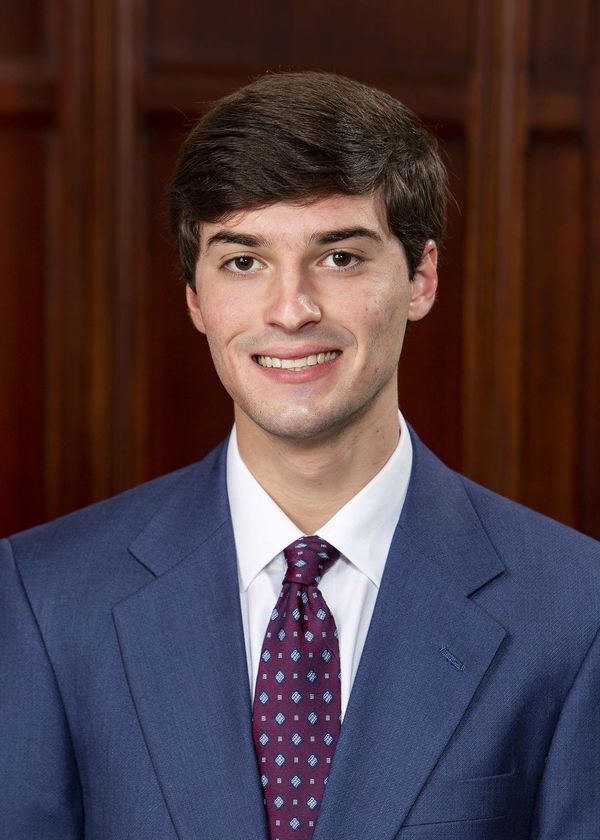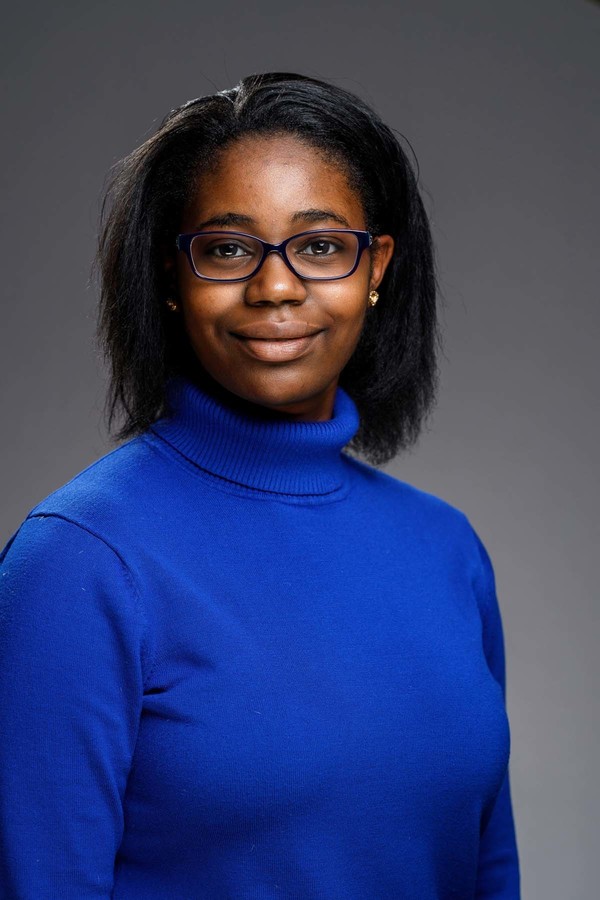Brady Stiller ’20 entered the University of Notre Dame thinking he might want to go to medical or dental school after graduation, but closed that door his junior year after following his heart to places he didn’t expect.

Stiller, the valedictorian of the class of 2020, graduated with majors in biology and theology and is discerning a call to the priesthood, but will not decide before he completes his Master of Nonprofit Administration degree through Notre Dame’s Mendoza College of Business, a program he will start during the fall semester.
“If I have any message to incoming students, it’s to absolutely do what you love,” said Stiller, who is from Madisonville, Louisiana. “You don’t have to decide on a certain path — just be yourself, and study what you’re interested in.”
Love Osunnuga, the salutatorian of the class of 2020, kept with her plan to attend medical school, and is she is soon headed to the University of Pennsylvania Perelman School of Medicine. However, she found a passion in an area she had previously abandoned: mathematics. Combining a biology major with an honors mathematics major culminated in a tough schedule, but one she felt her own calling to complete.
“I had taken calculus 1-3 in high school and I really loved math, but I didn’t think I was good at proofs,” she said, remembering how her pre-calculus teacher years earlier suggested she major in math one day, but she was not interested.
“But when I took honors calc 1 and it was proof-based, and though it was super-duper hard — one of the hardest classes I had ever taken — I realized it was really interesting,” said Osunnuga, who is from Granger, Indiana.
Dedication counts in order to graduate with a 4.0 grade point average. But both graduates point to several “softer” reasons for their success at Notre Dame.
First, no matter how accomplished students have been in high school, the rigor of the science program is such that everybody needs help sometimes. Don’t be afraid to work with other students, Stiller and Osunnuga said, and in many cases, professors encourage collaboration.

“You have to figure out how to manage the difficulty, and when I started the math major, the professors told us that it would be impossible to do everything by ourselves,” Osunnuga said, but added she initially thought she didn’t need to heed that advice. “Weeks later I realized I had to go to office hours.”
It’s also important for new students to take stock of things they’re passionate about, and make time for those. Don’t get involved in a lot of extracurricular clubs “just because.” College isn’t time to pad resumes, as students may have done in high school. Graduate and medical schools are looking for deep involvement in just a few areas.
Osunnuga, in addition to her studies and research, is a pianist and violinist, and scheduled her lab classes around her Monday evening work at the Suzuki School of Music. She also taught music theory, mathematics, and crocheting at the Robinson Community Learning Center.
Stiller, even though he was considering medical school during his freshman year, decided not to participate in summer undergraduate research his freshman year or shadow medical professionals during that time, and pursued other interests.
“The narrative that you hear, coming in as a freshman, is that you need four years of research, medical experience, and studying for the MCAT,” Stiller said. He waited to conduct undergraduate research until his sophomore year, “That first year, and even into your second year, get as much information as possible, and let yourself be curious; don’t feel forced. See what’s out there to explore at Notre Dame, since there’s more than enough opportunity.”
Future doctors might think they need to join a laboratory that’s conducting cancer research, but there are other opportunities tangential to medicine that might be a better fit for many students. Sometimes, a career in research may be a better fit than medicine. Stiller, even while he was considering medical school, felt pulled to do environmental research in the lab of Jason McLachlan, associate professor in the the Department of Biological Sciences, which he fully enjoyed.
Osunnuga initially thought she wanted to steer clear of cancer research, thinking it wasn’t the unique type of research she was looking for. But after taking a cell biology class and studying pancreatic cancer and immunology at the University of Pennsylvania, she became fascinated with the field.
“I thought I would go into clinical medicine, but after research and teaching jobs, I was driven to academic medicine and research,” she said, though she does not plan to pursue a dual MD/Ph.D. program.
In addition to managing time, research, and extra-curricular activities, Stiller suggests that students let their academic curiosity lead them toward majors and supplemental majors. Science can lead students down many paths, he noted.
Even one toward becoming a Jesuit priest.
“I found my path in science as someone who wants to go into ministry, and it will stick with me forever,” Stiller said. “Not only did I grow in the inquiry process, but science will come back in my life; I see the overlap in medical ethics, and science is developing so rapidly that we will be asking ourselves many moral and ethical questions.”
“Trying” to be valedictorian or salutatorian one day is not something anyone should strive for, Osunnuga and Stiller said. Neither had these honors as goals, and both were surprised to have been selected.
Of course, to do well, students should work hard. There were times Stiller had to forgo a tailgate party (despite living in a lively six-man unit in Dunne Hall). But he still attended football games and had some fun every weekend. It comes down to balance, he said.
Above all, students who want to be successful at Notre Dame should stay open and curious.
“Really enjoy what you’re doing, and take the time to build relationships with peers and professors,” Osunnuga said. “Those were among my most memorable experiences.”
Originally published by at science.nd.edu on July 01, 2020.